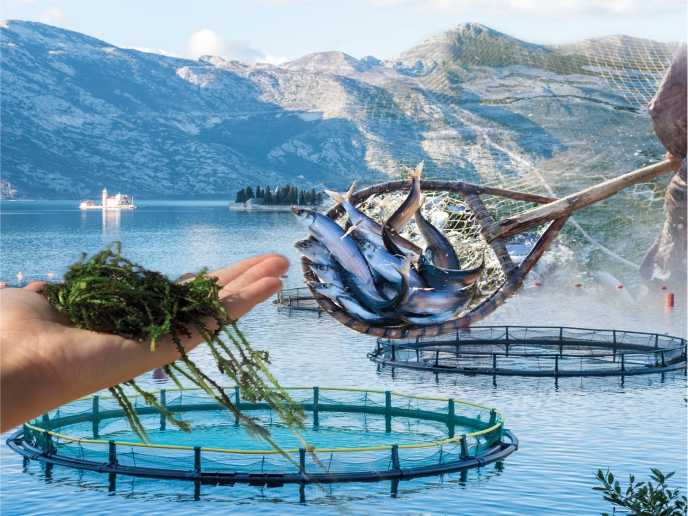EU research and innovation driving sustainable seafood in Europe and beyond
The European Commission aims to tackle the FNS challenge through its FOOD 2030 research and innovation (R&I) policy framework with a view to ‘future-proofing’ our food systems to become more sustainable, resilient, responsible, inclusive, diverse and competitive. FOOD 2030 sets out a systemic approach that will connect, scale-up and boost EU FNS R&I, while providing solutions in four overarching food system priorities: NUTRITION for sustainable and healthy diets; CLIMATE resilience and environmental sustainability; CIRCULARITY and resource efficiency; and finally, INNOVATION and the empowerment of communities.
EU action on food
The FOOD 2030 framework addresses the provision and consumption of healthy and nutritious food products obtained from marine and inland waters via capture fishing practices and aquaculture. Furthermore, in ‘Food from the Oceans’ (Scientific Opinion 5/2018), the Scientific Advice Mechanism (SAM) recommends that fisheries and aquaculture be wholly considered in a broad 'full system' context and points to the great potential for expansion in sustainable aquaculture. FOOD 2030 therefore supports the development of sustainable aquaculture in Europe and beyond as a source of healthy protein in the fight against hunger and malnutrition and as a means to meet an increasing global protein demand. Aquaculture stands out as sector with high potential to create jobs and growth, as recognised by the EU Blue Growth Strategy. Key to the sustainable development of European aquaculture is good planning of marine and fresh water activities that considers social, ecological and economic dimensions and their impacts. The sustainable management of traditional wild capture fisheries that eliminates wasteful or harmful activities, which is fully encouraged by the Common Fisheries Policy (CFP), will additionally ensure the preservation of healthy and productive marine ecosystems. Added measures are planned that will minimise unwanted bycatch and prevent discards. Therefore, initiatives throughout the EU will be developed to encourage the transfer of best practices across sustainable fisheries and aquaculture.
Highlighting the importance and scope of EU research
Funded under the EU’s Seventh Framework Programme (FP7) and Horizon 2020 Framework Programme for Research and Innovation, these 13 cutting-edge EU-funded research projects highlight how our marine and freshwater ecosystems contribute to food safety and healthy and sustainable nutrition in the EU (and globally) and how they deliver on the four FOOD 2030 priorities. Furthermore, these initiatives play an important role in increasing the confidence of European consumers in European seafood and related products. A number of projects are analysing the production dimension from different angles. AquaSpace’s goal is to provide greater space for aquaculture so as to allow increased production. Aiming to boost the sector’s productivity and competitiveness PrimeFish gathered data on individual companies, uncovering factors restraining market growth. DiscardLess and MINOUW worked to reduce discards in European fisheries. Meanwhile, ELOXIRAS developed a new advanced electrochemical oxidation technology for recirculating systems in aquaculture. Other initiatives explore elements of animal health and welfare. ULTRAFISH improved the processing of fish products by using an ultrasound to eliminate the use of chemical additives for microbial inactivation. SPG tested a unique, chemical free approach to prevent sea lice infection in salmon farms, while FISHBOOST improves fish breeding programmes for the most common commercial aquaculture species. Human health concerns are also covered by additional research initiatives. Blue Iodine II produced new seaweed-based products to tackle iodine deficiency in children, pregnant and nursing mothers, and the elderly. Finally, LIFEOMEGA developed highly concentrated omega-3 nutritional products for cancer patients.



